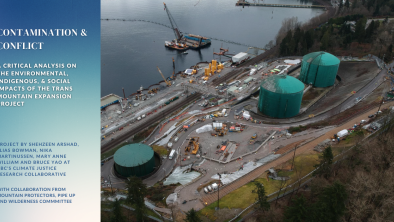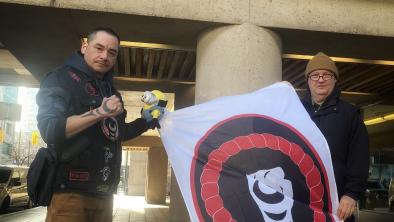Northern Gateway: First Nations, environmental groups fight on
Tuesday, June 17, 2014
Times Colonist

Environmental and First Nations groups pledged Tuesday to block the Northern Gateway pipeline project.
“It’s a slap in the face, but it changes nothing,” Caitlyn Vernon, campaigns director for Sierra Club B.C., said after the federal government announced conditional approval of the Enbridge project.
“We are expecting Christy Clark to stop it, to stand up for B.C.”
Vernon said the pipeline threatens crucial salmon streams, the Great Bear Rainforest of the central coast and other coastal habitat.
Torrance Coste from the Wilderness Committee said the decision makes it clear the federal government does not hold First Nations or environmental concerns in high regard.
“Do we want a Canada the doesn’t acknowledge First Nations, climate change or coast communities?” he said. “The public and the courts will stop this in its tracks.”
Several lawsuits were announced seconds after the approval.
Grand Chief Stewart Phillip said First Nations have five lawsuits lined up and seven more to follow.
A statement from more than 30 aboriginal groups said, “This project, and the federal process to approve it, violated our rights and our laws. … We will defend our territories whatever the costs may be.”
Chief Arnold Clifton from the Gitga’at nation in Hartley Bay said none of his community’s concerns were met in the conditions.
“The panel came to our village, ate our food and listened to concerns from children and elders,” he said, noting more than half of their sustenance comes from the sea. “We’re going to fight this tooth and nail — all the nations, all the way.”
The Federation of B.C. Naturalists said it will file a lawsuit with the Federal Court of Appeal, arguing the government used inadequate information in its decision. The organization, along with three other environmental groups, had already filed for a judicial review of the joint review panel’s report.
“The panel failed to consider the impacts on specific species, like caribou, and the potentially adverse affects, for example,” said Chris Tollefson, the lawyer leading a team from the Environmental Law Centre at the University of Victoria.
He expects more lawsuits to be filed and the Federal Court of Appeal to deal with them in one go.
“This will certainly be one of the largest pieces of litigation the Federal Court of Appeal has dealt with,” he said.
“It’s uncharted territory and, given the breadth of issues and number of parties, I can’t predict how long it will take. But I think the company will be very cautious in light of it.”


